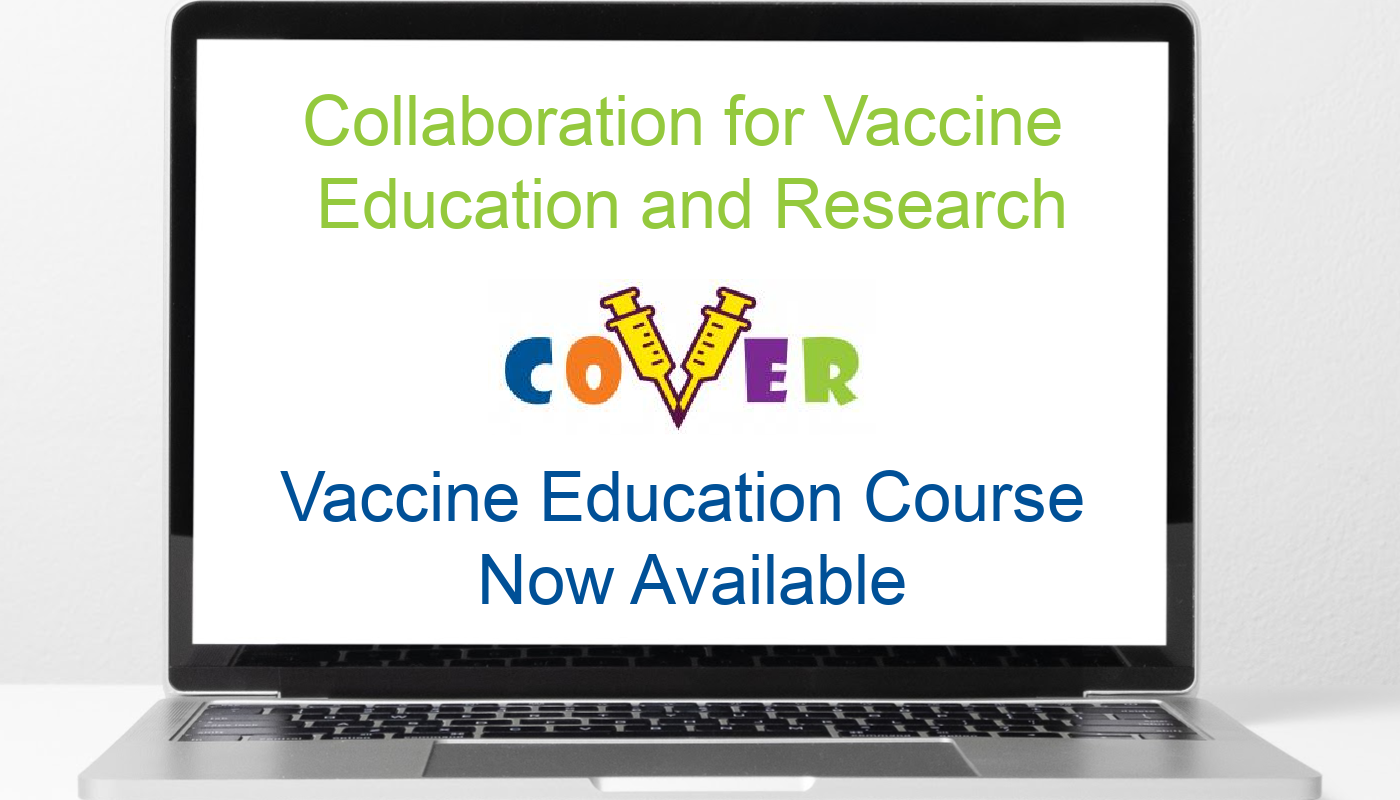Collaboration for Vaccine Education and Research (CoVER) recently released a free, online vaccine education course. The online curriculum consists of four modules that cover the topics of vaccine fundamentals, vaccine preventable diseases, vaccine safety, and vaccine communication. CoVER is a collaboration between Pediatric Infectious Diseases Society (PIDS); Society of Teachers of Family Medicine (STFM); Children’s Mercy Kansas City (CMKC); Vanderbilt University Medical Center (VUMC); and The Vaccine Handbook.
The CoVer course is interactive and self-paced with frequent learning checks to test course-takers’ knowledge. The course also offers opportunities to expand learning such as links to relevant articles and videos. The target audience is any healthcare personnel involved in the education and administration of vaccines. Register here: https://learningce.shea-online.org/content/collaboration-vaccine-education-and-research
The four CoVER modules are:
Module 1: Vaccine Fundamentals
This module introduces vaccine fundamentals, with topics such as types of vaccines (e.g., live vs. inactive), vaccine components (e.g., antigens, adjuvants), and the current vaccine schedules. It provides and overview of innate and adaptive immunity, discusses prime and booster vaccinations, and explains the CDC vaccine schedules and how to use them to develop an immunization plan.
Module 2: Vaccine Safety
This module, gives a brief introduction to vaccine safety in the U.S. It reviews how vaccines are developed, licensed, and recommended for use in the immunization schedule and the U.S. vaccine safety monitoring system. In addition, the module aids providers in differentiating between contraindications and precautions for specific vaccines. Finally, it identifies parents’ and patients’ most common concerns about vaccines and relevant facts related to these concerns.
Module 3: Vaccine Preventable Diseases
Module 3 focuses on the clinical manifestations of vaccine preventable diseases (VPDs) and introduces the concepts of vaccine efficacy and vaccine effectiveness. Even in countries with high vaccination rates, outbreaks of some VPDs (e.g., measles and hepatitis A) continue. The module includes clinical vignettes to enhance trainees’ understanding of select VPDs. In addition, trainees will learn the rationale for administering several specific vaccines including MMR and valuable information about the concepts of vaccine efficacy and effectiveness.
Module 4: Vaccine Communication
This module aims to provide communication methods on the subject of vaccines. It seeks to help providers assess attitudinal barriers to various vaccines among vaccine-hesitant individuals. The module helps trainees create a plan for approaching families in each level of vaccine hesitancy and model the “presumptive” approach to vaccination. Finally, it uses moral, legal, and clinical considerations, to propose a clinic policy regarding dismissal of families or patients that choose to refuse vaccination.
Module 4 also offers resources and handouts to aid providers in having a face-to-face training in their practice on HPV and Influenza vaccines. The training is designed to give providers “rehearsal time” with recommending HPV and influenza vaccine the same way and the same day as the other adolescent vaccines and using every encounter as an opportunity to vaccinate.
As a whole, the course provides excellent background on vaccine fundamentals before setting up for its arguably most important topic: vaccine hesitancy. This gives all personnel involved in vaccine administration the knowledge required to provide confident vaccine recommendations. This new course is an excellent resource for any healthcare workers who vaccinate patients.
